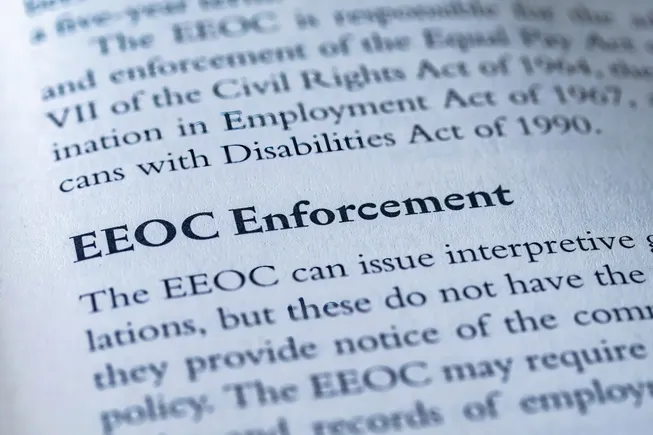A former vice president of government relations at Omnis Global Technologies was “aggressively” pressed to convert to the Church of Latter-Day Saints, the religion shared by the owner and several top executives, she alleged in an Oct. 30 lawsuit.
The plaintiff in Christian v. Omnis Global Technologies LLC joined the company as a remote employee in November 2020. At the time, the company’s vice president of HR, the general counsel and others were all members of the LDS church, and many of these roles were filled by friends and relatives of the owner, the plaintiff said.
Although the plaintiff said she didn’t want to discuss religion at work and declined to show interest in joining the church, the company owner “sought to ‘convert’ Plaintiff to his religion and press his religious views on her throughout her entire period of employment with Defendants (and aggressively so),” according to the lawsuit.
In addition, many work conversations focused on religion, she alleged. For example, she said management facilitated LDS prayers at business meals and discussed events the church was hosting. The owner also asked the general counsel to print out and share an LDS prayer with the plaintiff.
As one of the few female executives, the plaintiff alleged she was also subject to comments on women being better suited to the home, was subject to “inappropriate” comments on her physical appearance, and heard negative statements about her capabilities that were not similarly directed toward male or LDS colleagues.
Additionally, the plaintiff alleged the defendants entangled her in their efforts to convert other women to the religion. The owner of Omni asked her to “watch over” two teenage girls who were traveling with the company and who Omni employees were taking to church events. She expressed her discomfort with the situation and asked not to be involved.
Finally, the plaintiff raised concerns about the company potentially making false representations to government officials to receive loans and grants, according to the lawsuit. When she confronted the owner about her suspicions, she alleged he made an “actual advance” toward her and said, “hold my hands and look into my eyes and tell me you believe me.”
Shortly after this confrontation — and after complaining to the owner in an email about his behavior — the worker was terminated, according to the lawsuit.
The plaintiff filed a lawsuit in the Eastern District of Pennsylvania, alleging sex discrimination, retaliation and harassment in violation of Title VII of the Civil Rights Act of 1964; religious discrimination, retaliation and harassment in violation of Title VII; and retaliation in violation of the False Claims Act.
She also alleged Omnis engaged in unjust enrichment by withholding a promised bonus of more than $200,000, as well as breach of contract and unpaid wages in violation of Pennsylvania state law.
Omnis did not respond to a request for comment.
Balancing religious expression in the workplace
“Employers should not try to suppress all religious expression in the workplace,” the U.S. Equal Employment Opportunity Commission stated in a technical assistance document related to religious discrimination in the workplace. However, employers must consider the effect such expression has on co-workers, customers and business operations, EEOC said.
“If an employee complained about proselytizing by a co-worker, the employer can require that the proselytizing to the complaining employee cease,” EEOC said.
The right to work free of harassment “most likely trumps” another employee’s right to practice their religion in their workplace, including by proselytizing, according to an article published by legal source Nolo. Employers are not required to accommodate religious behavior that creates an undue hardship, “and conduct that harasses other employees or customers imposes this kind of burden on the employer.”






Leave a Reply